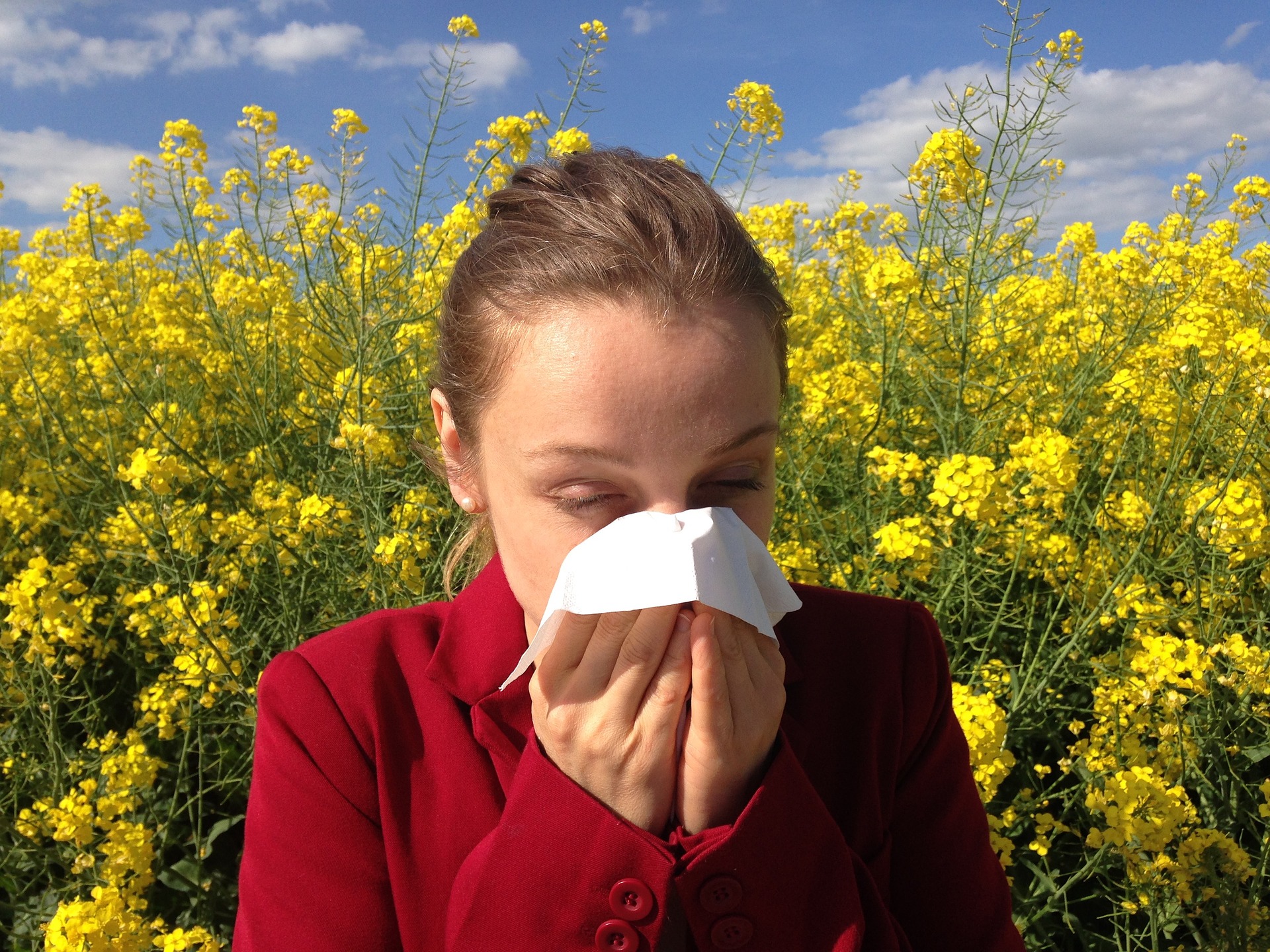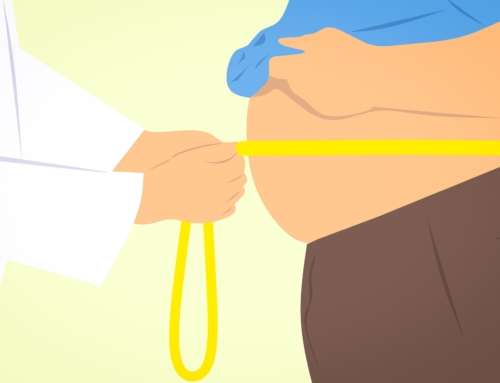A few nights ago, I was walking outside and turned a corner and I felt like I was attacked by pollen. I suddenly started sneezing, my eyes were watering, my throat was scratchy and my nose was dripping. I haven’t had seasonal allergies like this in years and I suspect many of you are suffering with the same problem so I wanted to share a few tips with you.
The key to not getting a sinus infection is working on preventing it in the first place. The sinus cavity is a closed system with each sinus having one way in and one way out so when the mucous membranes start to swell the exit door gets closed off. When this happens you have mucous and bacteria trapped and this creates the perfect set up for a bacterial infection. It is very difficult to clear the infection once it is there because the infection only adds to the inflammation sealing the door even further.
The way to prevent an infection needs to be approached from different angles.
- Decrease the load of allergens presented
- Decrease inflammation to keep the exit door open so mucous can clear
- Thin the mucous so it can sneak out even if there is some inflammation and the door is closed part-way
- Boost the immune system to try to fight off bacterial infections.
There are some natural ways to approach this so READ ON for 5 tips to tackle allergy season from these angles…..
- Neti pot: the neti pot might just be the most important go to as a first defense. If you are not familiar with this little gem, then head to your nearest drugstore. Just by rinsing out the nasal cavity will decrease the pollen count. During high seasonal allergens, use it twice a day. Make sure your water is as sterile as possible and distilled is even better. Some people will add 1 teaspoon of apple cider vinegar during allergy season for an extra boost.
- Nasal spray
- Saline spray: this can also help rinse out allergens but will also keep the nasal passages from drying out
- Cool mist humidifiers – also help the nasal passages
- Raw honey: 1 TBSP of LOCAL raw honey has been shown to help desensitize your system to local allergens. It needs to be from honeybees that are in your area so they are exposed to the same allergens you are. This can be helpful if you start this before allergy season but doing this on a regular basis can start to help desensitize you. Think of this as a natural allergy shot but like allergy shots it takes time to work.
- Apple cider vinegar: This has many health benefits but it may help with allergies, too. Add a teaspoon of apple cider vinegar to 8 ounces of water and drink it every morning. You get extra bonus points for adding some fresh squeezed lemon juice which helps alkalinize and detoxify your system.
- Supplements (I rely heavily on these):
- Quercetin: quercetin helps stabilize the mast cells which helps diminish the release of histamine. It also helps decrease the release of prostaglandins which are inflammatory.
- Stinging nettle: this product works on balancing the immune system specifically in the airways and nasal passages. It also naturally balances histamine. It has a whole list of other indications including joint pain so don’t think of this only as an allergy relief herb.
- Bromelain: this is an enzyme that helps decrease inflammation but it is also good at thinning nasal secretions.
- Andrographis: andrographis is a power house in immune boosting and I often recommend this when you are trying to fight off colds. It is especially good for upper respiratory health.
- N-acetyl cysteine: NAC helps thins and promotes clearing of the mucous in the sinus cavity which is very important when you are congested
- Essential oils: there are several that have a role during allergy season. Thieves, eucalyptus and frankincense would be three important ones. Diffusing essential oils may also help.
Here are a few products that contain some of these ingredients:
- Sinatrol by Orthomolecular: NAC, turmeric, bromelain, berberine, licorice root, andrographis, eluthero, and thyme
- AllerDHQ by Xymogen: vitamin C, quercetin, stinging nettle, bromelain, rutin, NAC
- Andrographis by Metagenics: andrographis plus a blend of other herbal extracts
(you can order from our website with code VMD4447)
What if you are in sinus trouble right now?
At the first sign of getting congested, I reach for Sinatrol and will take it twice a day for a few days then decrease it to once a day to see if I can ward off a full blown infection. I will also rinse my sinuses as soon as I come in from outdoors. The key is starting it at the very first sign because if you wait until it is full blown it won’t be strong enough.
If I have severe congestion and I recognize I am going down the path towards a sinus infection (which means I don’t use this very often), I will reach for a nasal spray like Flonase or if this dries you out too much then Sensimist by Flonase. Nasocort is also another option. Be aware the Flonase and Nasocort are different types of steroids which work on decreasing inflammation to keep the passages open. I will use these twice a day for a short period of time and do not recommend these long-term. I know, I know you are asking why am I using steroids? Honestly, I would rather keep the passages open and avoid having to use antibiotics for an extended period of time! Another nasal spray some people reach for is Afrin which is a vasoconstrictor that tries to constrict the blood vessels hoping to decrease congestion. This product can cause a rebound effect (meaning you get worse) when you stop it so use it very sparingly and not routinely if at all.
If you have tons of pressure in your sinuses that is not clearing, your skin is getting red in the area over your sinuses, or you have a green or yellow discharge then you have a sinus infection. If you get to that point, antibiotics will be needed. Be sure and take the antibiotics for the full course along with a good probiotic containing saccharomyces to preserve your gut flora. Because many people cannot truly clear a sinus infection in only two weeks of antibiotic use, I also recommend transitioning off the antibiotic to something like Sinatrol to continue with the positive effects.
If you know you have significant seasonal allergies then working on stabilizing the histamine system and decreasing the overall histamine load becomes important prior to allergy season. In the future it is important to look at all of the histamine contributors. You have heard me talk about the histamine system like a bathtub before. If you are allergic to certain animals, it raises the water in the bathtub. If you have food sensitivities, it raises the water in the bathtub. If you have seasonal allergies, it raises the water in the bathtub. One component can be severe enough to cause the bathtub to overflow which creates symptoms or it can be a combination of several types of allergies/sensitivities to overflow the bathtub. If you have allergies year round then you are most likely eating something or being exposed to something in your day to day world that is keeping the water level high in your bathtub so it doesn’t take much of an environmental exposure to overflow it. Allergists check for IgE exposures but I have found the IgG pathway to be a major contributor to food issues so if you have seen an allergist and they have said you are only allergic to ragweed etc then explore the food side of things! Looking at food sensitivity tests can be very helpful for this and we have one we use at the office so call us for more information.
To your health,
Laura









